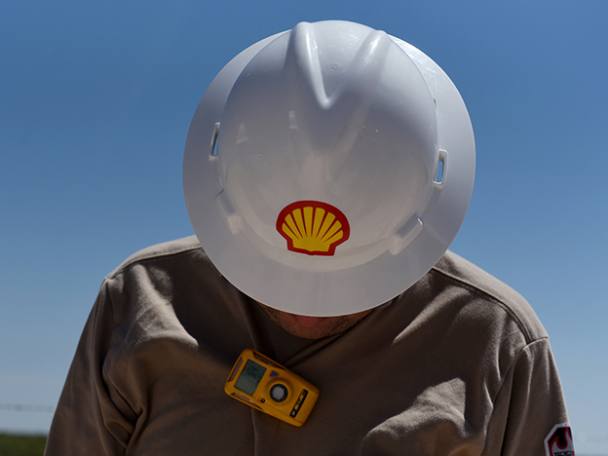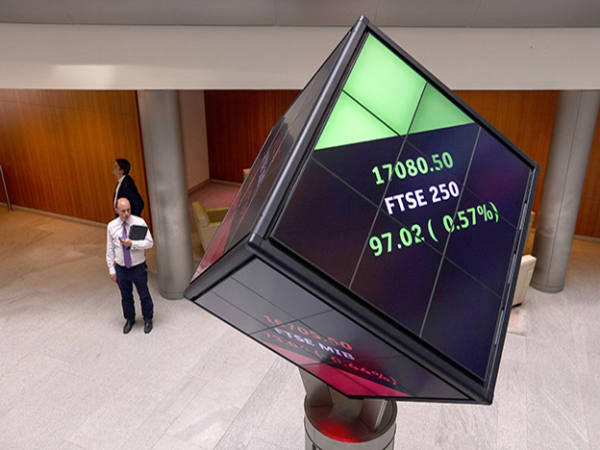- Adjusted earnings rise to $9.1bn, up from $3.2bn a year ago
- Russia impairment hits bottom line but stronger outlook should spur more buybacks
Energy giant Shell (SHEL) has tripled its adjusted profits on the back of higher energy prices and trading income, and looks set to increase its buyback volume later in the year.
Like BP (BP.), which also enjoyed much-improved cash flow, Shell put its investments in European oil and gas supply at the forefront of its March quarter earnings announcement. Energy companies have come under pressure to rein in shareholder payouts in favour of higher investment in output. Shell boss Ben van Beurden said the company had been working with governments and customers on maintaining supply.
“The war in Ukraine is first and foremost a human tragedy, but it has also caused disruption to global energy markets and has shown that secure, reliable and affordable energy simply cannot be taken for granted,” he said.
Gas prices have climbed to new highs on much higher demand and inadequate supply, while oil prices hit 13-year highs in recent months after Russia’s invasion of Ukraine. Brent crude is currently trading around $110 a barrel. Shell’s production was actually down 15 per cent compared with a year ago, at 2.96mn barrels of oil equivalent per day (boepd), because of the sale of the Permian assets in the US and maintenance on the gas side.
Shell’s earnings reflected this price environment. Adjusted earnings for the March quarter were $9.1bn (£7.3bn), ahead of analyst expectations and almost triple the $3.2bn earned in the same period last year. Compared with the December quarter, adjusted earnings were up 43 per cent. Cash flow from operations (pre-working capital) was $22.2bn, against consensus forecasts of $15.7bn.
The bottom line took a hit from the $3.9bn writedown on Shell’s Russian joint ventures, leading to a profit to shareholders of $7.1bn.
Shell has also said it will stop all purchases of Russian cargoes on the spot market, part of the company boycott that has cut Russian exports before official sanctions have come in. The European Union has now said it will ban Russian oil imports by the end of the year, although Hungary has said it will block the move.
The outlook remains positive for energy prices, although the cost of living crisis means governments are keen to see profits going into investment rather than massive dividends. The UK government has said it would not bring in new taxes but is pushing for greater investment in North Sea production.
Business, energy and industrial strategy minister Kwasi Kwarteng said he welcomed Shell's plan to invest £25bn into the UK in the next decade. "We’re backing North Sea oil and gas for our energy security, but in return I want to see profits reinvested back into the UK," he said. No more than £6.2bn of that £25bn will go toward oil and gas production, Shell said, with the majority earmarked for low-carbon projects like renewables and hydrogen.
At the same time, investor returns are also on the way.
Shell's quarterly dividend has been increased by 4 per cent – as per the policy in line with BP’s – to 25¢ a share. Buybacks are where investors will see a bigger uptick in returns, though. Shell will continue with its $8.5bn buyback programme, expected to be complete by the end of July, and said second-half distributions would be “in excess of 30 per cent of cash flow from operating activities” given the outlook for oil and gas prices.
Jefferies analyst Giacomo Romeo said this could mean more than $6bn a quarter in buybacks, an increase of around 40 per cent on the current level.
Like BP and the other majors, the outlook for Shell is strong this year. RBC Capital Markets analyst Biraj Borkhataria said it was ahead of the field.
"Shell continues to generate operating cash flows and free cash flows well in excess of any of its peers," he said, contrasting the pre-working capital operating cash flow figure of $22bn against BP's $12bn, Chevron's (US:CVX) $9bn and Exxon-Mobil's (US:XOM) $13.7bn. Gearing is also down to just over 20 per cent, as cash has gone into cutting debt as well as investor payouts.
The question now is how Shell can sustain this kind of performance. We remain bearish on its longer-term prospects past this current boom. Sell.
Last IC View: Sell, 1,984p, 15 Feb 2022









